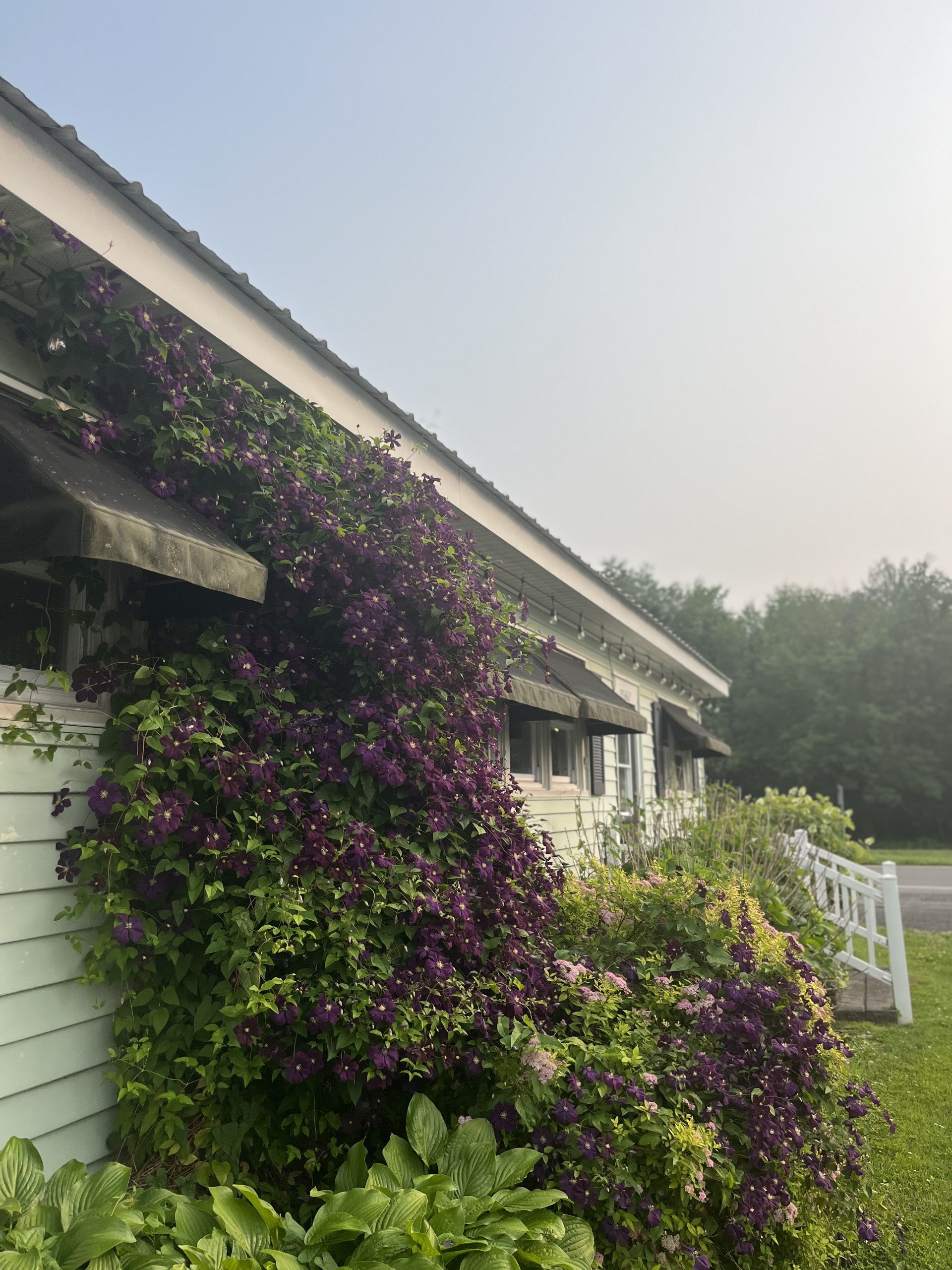
lanternfly
christine catterall
It starts with a single spotted lanternfly on the kitchen floor.
Actually, it starts with coming home late summer to find three of the insects on your wooden patio floor. You’re a little surprised because you saw the large signs around campus and billboards on the roads for months promoting the genocide of an insect about the size of your thumb. You hadn’t seen a single one up until now. They seem harmless and don’t fly away unless they see you coming from the front. You almost don’t kill them, but when Mom comes out, she doesn’t hesitate to slap them with her sandal. She doesn’t care how loud the smack is. You take that as your cue to follow her lead and finish one while the other flies away. Mom mentions they keep coming, so keep an eye out for them.
So now it’s a bit of a routine: go outside, water your plants, sit in the shade, and kill a lanternfly on your way back inside.
But then your routine evolves into a bit of a song and dance when the wasps that you thought were bees get pissed at your Dad’s attempt to get rid of them and start building a nest right by the door. You duck and go in and out the door swiftly like you’re breaking and entering.
Now there are two bugs to take care of. One you’re not sure if you should kill because bee populations are dipping, and one where you feel bad about not getting them all since they’re destroying plants.
The feeling persists the rest of the night, and you choose to ignore the lanternflies and wasps when you read outside later.
The conversation shifts when, weeks later, your aunt’s mother-in-law ends up in the hospital and Dad spends many phone calls translating the doctors’ language. He leaves to talk to her so many times you end up with a three-quarters finished puzzle of the situation. The first time you hear Dad say “you may have to consider…” you find it best to tune out the rest of the conversation or to sneak outside to hunt for bugs.
Then your thirteen-year-old labradoodle can’t stand up anymore without help, and midnight becomes accompanied by whimpers of pain and the rattling of pill bottles. She can walk, she can stand, but it becomes harder to watch her struggle and whine when all she does is sit and rest. Every day afterward, every conversation that even mentions the name of your dog is filled with pity and worries and at least one mention of the alternative if the medicine isn’t working. You know they mean well, and thirteen is a long time, but it’s become a constant buzz in your head, and you wish that you could swat the words and never think about them again.
An icky feeling begins to settle in your conscience, and some days all you can do is imagine billboards with answers on how to cope with grief rather than broadcasting the call to lead the extinction of an invasive species. You think about this as you cuddle your dog and stare at the lanternflies resting on the backyard door.
But it ends with a single spotted lanternfly on the kitchen floor.
There’s a bang, and insect is dead, the brown sandal you were just wearing in your hand. You stare at the tiny corpse, and really look at it for the first time; its polka dot wings half spread, revealing a fragile scarlet and white body one could only see in escape attempts.
Your parents don’t even bat an eye; you just got back from a weekend trip in New Hampshire after all. Dad helps bring in the bags while Mom runs to get ready for your aunt’s mother-in-law’s wake in a few hours. Mom talks about something she saw online about spraying the wasp nests with vinegar or some remedy to get them to go away. Dad follows her, reminding her of your dog’s appointment with the vet soon and needing new pain meds.
The information is barely processed, and as their voices fade beneath the static in your swarming head, you sit on the kitchen floor. You look up and find yourself gazing out the glass to see tiny bodies littering the patio like flower petals scattered by the wind.
The icky feeling returns, and for the first time, you feel guilty about killing the lanternfly.
christine catterall
Christine Catterall is a senior Creative Writing and Publishing & Editing double major with a minor in Women & Gender Studies. She loves to incorporate nature into her writing, and one of her favorite things to do around campus is take pictures of plants and small critters/insects she comes across.
-
This author does not have any more posts.
